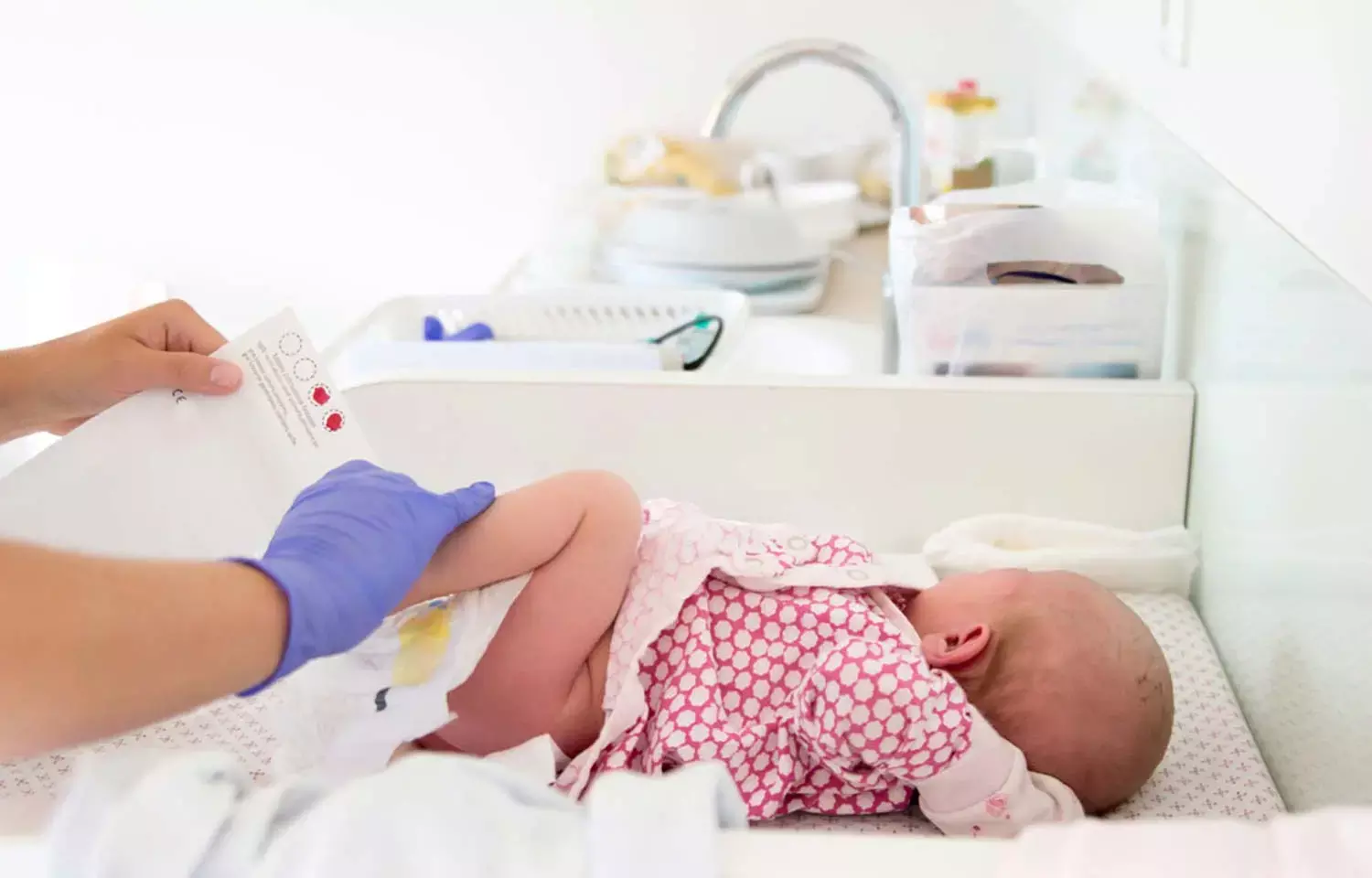- Home
- Medical news & Guidelines
- Anesthesiology
- Cardiology and CTVS
- Critical Care
- Dentistry
- Dermatology
- Diabetes and Endocrinology
- ENT
- Gastroenterology
- Medicine
- Nephrology
- Neurology
- Obstretics-Gynaecology
- Oncology
- Ophthalmology
- Orthopaedics
- Pediatrics-Neonatology
- Psychiatry
- Pulmonology
- Radiology
- Surgery
- Urology
- Laboratory Medicine
- Diet
- Nursing
- Paramedical
- Physiotherapy
- Health news
- Fact Check
- Bone Health Fact Check
- Brain Health Fact Check
- Cancer Related Fact Check
- Child Care Fact Check
- Dental and oral health fact check
- Diabetes and metabolic health fact check
- Diet and Nutrition Fact Check
- Eye and ENT Care Fact Check
- Fitness fact check
- Gut health fact check
- Heart health fact check
- Kidney health fact check
- Medical education fact check
- Men's health fact check
- Respiratory fact check
- Skin and hair care fact check
- Vaccine and Immunization fact check
- Women's health fact check
- AYUSH
- State News
- Andaman and Nicobar Islands
- Andhra Pradesh
- Arunachal Pradesh
- Assam
- Bihar
- Chandigarh
- Chattisgarh
- Dadra and Nagar Haveli
- Daman and Diu
- Delhi
- Goa
- Gujarat
- Haryana
- Himachal Pradesh
- Jammu & Kashmir
- Jharkhand
- Karnataka
- Kerala
- Ladakh
- Lakshadweep
- Madhya Pradesh
- Maharashtra
- Manipur
- Meghalaya
- Mizoram
- Nagaland
- Odisha
- Puducherry
- Punjab
- Rajasthan
- Sikkim
- Tamil Nadu
- Telangana
- Tripura
- Uttar Pradesh
- Uttrakhand
- West Bengal
- Medical Education
- Industry
Bronchiolitis, monoclonal antibody halves hospitalizations of children younger than six months old: Study

A single dose of the long-acting antibody nirsevimab developed to prevent respiratory syncytial virus infections (The drug has been approved at the European level to protect infants in their first season of exposure to the virus) to infants can halve hospitalisations for bronchiolitis. It is the result of a study involving the Università Cattolica del Sacro Cuore, Rome campus - Fondazione Policlinico Universitario Agostino Gemelli IRCCS, co-ordinated by Universitat Politècnica de Catalunya (UPC), Catalonia, Children's Emergency Department, Leicester Royal Infirmary and University of Edinburgh, the first to analyse a ‘real world’ case study.
The work was published in the journal Lancet Regional Health - Europe and was co-ordinated by Dr. Danilo Buonsenso, researcher in General and Specialist Paediatrics at the Faculty of Medicine of the Catholic University and paediatrician at the Paediatric Infectious Diseases Unit of the Fondazione Policlinico Gemelli IRCCS.
Buonsenso explains: ‘now, for the first time, a real-world study has analysed the concrete impact of nirsevimab by comparing European countries with different health policies: Catalonia (Spain), where the drug was introduced in 2023-2024, and some areas of the UK and Rome (Italy), where it had not yet been adopted’.
Bronchiolitis is an acute viral infection that affects the respiratory system of children under one year of age mainly in the first six months of life with greater frequency between November and March. It is often associated with respiratory syncytial virus infection (in about 3 out of 4 cases) that can cause respiratory failure especially in children under one year of age - among babies under six months old.
But other viruses can also be the cause, metapneumovirus, coronavirus, rhinovirus, adenovirus, influenza and parainfluenza viruses. Infection results from transmission primarily by direct contact with infected secretions.
The data, collected from 68 Catalan hospitals and 5 hospitals in the United Kingdom and Italy, show a clear result: in children under 6 months in Catalonia, hospitalisations for bronchiolitis have almost halved compared to the average of previous seasons. Emergency room admissions for the same age group were also significantly reduced. In contrast, no significant reduction emerged in the other European centres where nirsevimab was not administered.
The drug's effect was less pronounced in older children (between 6 and 23 months), suggesting that the greatest efficacy is concentrated in the first few months of life. The authors also emphasise the need for larger, internationally coordinated studies, not least to assess the economic sustainability of introducing nirsevimab on a large scale.
The study represents an important step in assessing the real effectiveness of new preventive strategies against RSV, comparing for the first time countries with different approaches to its implementation, Buonsenso concludes.
Reference:
Real-world impact of nirsevimab immunisation against respiratory disease on emergency department attendances and admissions among infants: a multinational retrospective analysis, The Lancet Regional Health - Europe (2025).
Dr Kamal Kant Kohli-MBBS, DTCD- a chest specialist with more than 30 years of practice and a flair for writing clinical articles, Dr Kamal Kant Kohli joined Medical Dialogues as a Chief Editor of Medical News. Besides writing articles, as an editor, he proofreads and verifies all the medical content published on Medical Dialogues including those coming from journals, studies,medical conferences,guidelines etc. Email: drkohli@medicaldialogues.in. Contact no. 011-43720751


